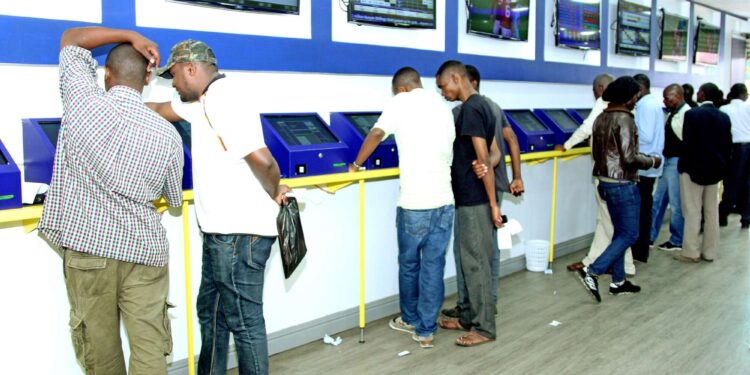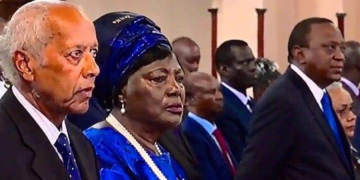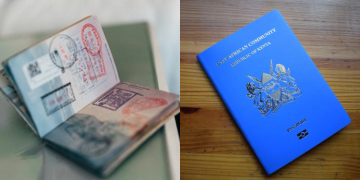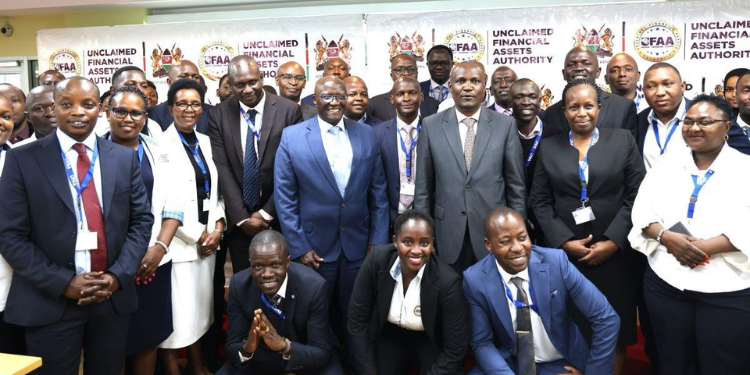Starting a betting firm in Kenya is a regulated process overseen by the Betting Control and Licensing Board (BCLB), which operates under the Betting, Lotteries and Gaming Act (Cap 131) of 1966.
This board is mandated to ensure that all betting, lottery, and gaming activities in the country are carried out responsibly and transparently, while also safeguarding the public from criminal exploitation and promoting the integrity of the industry.
Recent reports indicate a concerning rise in suicide cases across Kenya linked to gambling, with an average of up to two incidents occurring daily. In March 2025, a tragic incident occurred in Emsoo, Keiyo North, Elgeyo Marakwet County, where a Junior Secondary School (JSS) teacher at Cheptarit Primary School, was found dead after reportedly losing Ksh 900,000 through betting.
Previously, in July 2024, at least seven suicides cases were reported over a single weekend, including a tragic case in Kikuyu where a 30-year-old man jumped from the eighth floor of a building after expressing suicidal thoughts to his girlfriend.
Betting addiction has become a significant public health concern in Kenya, particularly among the youth. A 2024 GeoPoll survey revealed that 84% of Kenyan youth had experimented with betting, with one-third engaging in it daily.
Because of the availability of mobile money platforms like M-Pesa, widespread internet connectivity has worsened this issue, making betting a common activity among young people, including students and the unemployed youth.
Process of Opening a Betting Firm
Kenya has a well-defined process that requires anyone who wants to start the betting the business that includes various legal and financial requirements.
1. Company Registration
The first step in opening a betting firm is to register your business as a company. This is done through the eCitizen portal. Once you complete the registration, you will receive your Certificate of Incorporation, making your company legally recognized to operate within Kenya. It will cost you an application fee of Ksh 10,000 and the investigation fee of Ksh 50,000.
2. Obtain a Betting License
The Betting Control and Licensing Board (BCLB) is the regulatory body that governs all betting activities and firm in Kenya. According to BCLB, based on the type of betting operations you wish to run, you must apply for one of the following licenses:
-
Bookmaker’s License: For sports betting or event betting.
-
Totalizator License: For pool betting schemes, like horse racing.
-
Public Gaming License: For land-based casinos and similar gaming establishments.
-
Online Betting License: For internet-based betting platforms.
3. Documentation Required for the Application
When applying for a betting firm license, you will need to provide a range of documents. These include:
-
A certified copy of the Certificate of Incorporation.
-
CR12 Form showing company shareholders and directors.
-
Police clearance certificates for all directors.
-
Certified copies of directors’ national IDs or passports.
-
A Tax Compliance Certificate from the Kenya Revenue Authority (KRA).
-
Business Permit from your local county government.
-
Proof of premises ownership or a lease agreement if your betting operation has a physical location.
-
A detailed financial plan and business plan.
-
An Anti-Money Laundering (AML) and Counter Financing of Terrorism (CFT) framework.
-
For online betting companies, a proposed website/platform with test credentials.
Also Read: TV & Radio Stations Slapped with Fresh Directives Over Betting and Gambling
4. Capital Requirements
The BCLB stipulates minimum capital requirements for betting firm, depending on the type of license you are applying for,
Also Read: Meet Shrewd Businessmen Behind the Success of Betika Betting Company
5. Payment Systems Integration for Betting Firms
M-Pesa, a popular mobile money service in Kenya, used for betting transactions. Integrating payment systems that allow for quick and secure deposits and withdrawals is essential for your business’s success.
6. Tax Obligations
Betting firms in Kenya are subject to specific tax regulations. The key taxes include:
-
A 15% tax on the gross gaming revenue of the business.
-
A 20% withholding tax on winnings paid out to customers. Staying compliant with tax obligations is critical to avoid penalties and ensure smooth operations.
7. Complying with Regulatory Requirements
Apart from tax compliance, betting firms must adhere to various other regulations set by the BCLB. These include:
-
Promoting responsible gambling by implementing self-exclusion mechanisms and providing resources for problem gamblers.
-
Preventing underage betting by ensuring that only adults can participate in betting activities.
-
Monitoring and reporting suspicious financial activities to prevent money laundering.
-
Regular audits and checks to ensure the operation are run transparently and fairly.
Follow our WhatsApp Channel and X Account for real-time news updates.









































































